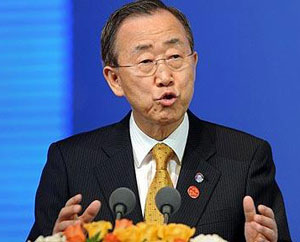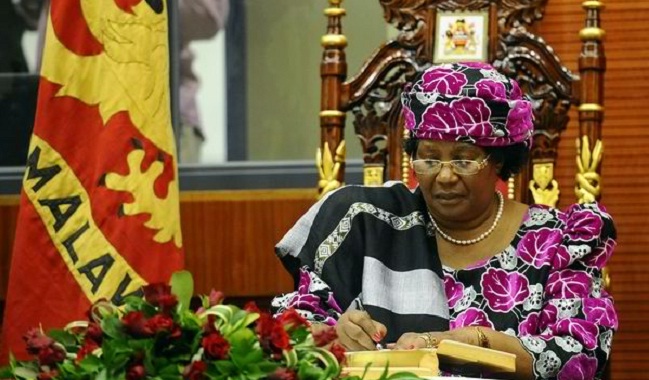As Tanzania ponders its next move following the sudden pullout by Malawi on Tuesday from talks to resolve a border dispute between the two sides, experts on international affairs and conflict resolution have advised the parties to take the issue to international bodies for resolution.
Speaking to the media at different times yesterday the experts said the Malawi move to withdraw was a clear sign that without an international arbitrator it would be difficult to continue with efforts to seek a lasting resolution.
Tanzania and Malawi are enmbroiled in a pre-independence border dispute on Lake Nyasa – officially known in Malawi as Lake Malawi – whose bed is estimated to be rich in oil and gas.
While Malawi claims ownership to the entire water body – the third largest fresh water lake – Tanzania says the border separating the two countries runs in the middle of the lake.
But on Tuesday Malawian President Joyce Banda announced that she was halting talks with Tanzania citing that the latter had made moves that amounted to “aggression” – including a threat to blow up Malawian fishermen’s boats plying on waters said to be on Tanzanian side, and publishing a new map that shows the border passing in the middle of the lake.
Last month, three weeks after the five-day meeting in Lilongwe over the matter ended in a stalemate, Tanzania published a new map showing clearly all its international borders.
Prof Mwesiga Baregu, a renown political scientist with extensive experience in international conflict resolutions, said the two countries should consider taking their case to the United Nations, the African Union or the Southern Africa Development Cooperation (Sadc) where both countries hold membership, in a bid to find a lasting resolution.
“Collapse of the talks is not end of the road. The two countries could, and should, engage third parties. In fact, they could even go to the UN’s International Court of Justice. A border dispute over Lake Chad in West Africa was resolved through ICJ and this could be a good precedence,” Prof Baregu who teaches Political Science at the St Augustine University of Tanzania (Saut) said.
Prof Tolly Mbwete also said it was obvious that with Malawi deciding to pull out now the talks between the two countries had hit a deadlock and efforts to pursue that route would be useless.
“It is now time for international justice to take its course over the dispute,” Prof Mbwete, the vice chancellor of the Open University of Tanzania (OUT), said.
For his part, Prof Chris Maina, an expert in International Laws and Human Rights from the University of Dar es Salaam (UDSM) urged the government to utilise well its experts to critically think over the whole matter and decide the way forward.
“The country now boasts many experts in international law and conflict resolutions, it’s prudent to make use of their expertise since the best way forward now is to take the matter before international bodies,” advised Prof Maina.
Dr Benson Bana from the UDSM cautioned the Tanzanian government to watch over steps being taken by the Malawian government because its leaders seemed to make rushed decisions.
“Malawian leaders seem to want to pressurise Tanzania into agreeing with its position in the dispute. This is the habit of leaders who are more of activists than politicians and statesmen and women,” Prof Bana warned.
On separate days, the leaders of the two countries, Tanzania’s Jakaya Kikwete and his Malawian counterpart Joyce Banda held talks with the UN Secretary General, Mr Ban Ki Moon, and presented their sides of the story to the dispute.
The path of international justice was, in fact, preferred by Malawi right from the beginning of the talks on the dispute in August.
Malawi, a year ago, awarded oil exploration licences to UK-based Surestream Petroleum to explore oil in the bed of the lake on the section that Tanzania claims to be within its territory.
But in July, Tanzanian authorities asked Surestream Petroleum to suspend their activities until when the border issue was resolved.
Lake Nyasa has more than 2,000 fish species, attracting scuba divers. News of possible oil explorations and ultimate drilling in the lake have caused concerns among environmentalists. They claim that such activities will disturb the lake’s freshwater ecosystem.
Malawi claims ownership of the entire lake under an 1890 accord whose validity is disputed by Tanzania.




